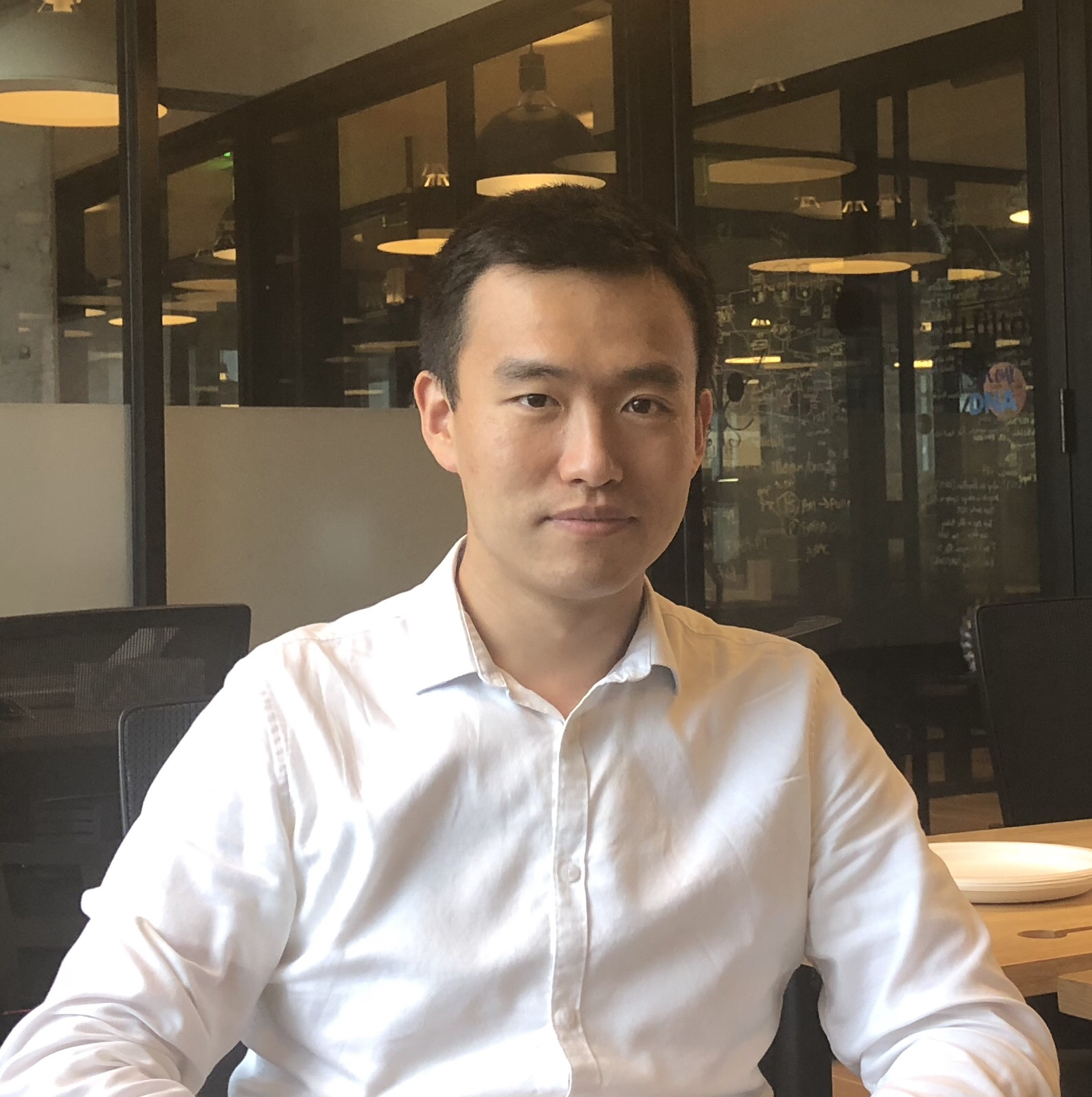People

Leticia Bode
Associate Professor, Communication, Culture and Technology Program, Georgetown University
Political Communications group, Parenting group
Dr. Bode’s work lies at the intersection of communication, technology, and political behavior, emphasizing the role communication and information technologies may play in the acquisition and use of political information. This covers a wide area, including projects looking at incidental exposure to political information on social media, effects of exposure to political comedy, use of social media by political elites, selective exposure and political engagement in new media, and the changing nature of political socialization given the modern media environment. Leticia Bode’s website.

Ceren Budak
Assistant Professor of Information, School of Information Assistant Professor of Electrical Engineering and Computer Science, College of Engineering, University of Michigan
Political Communications group
Dr. Budak’s interests lie in the area of computational social science. She is particularly interested in the use of large scale data sets and computational techniques to study problems with policy, social and political implications. Ceren Budak’s website.

Pamela Davis-Kean
Professor, Department of Psychology; Research Professor, Survey Research Center, Institute for Social Research; Research Professor, Research Center for Group Dynamics, Institute for Social Research, University of Michigan
Parenting group
Dr. Davis-Kean’s research focuses on the various pathways that the socio-economic status (SES) of parents relates to the cognitive/achievement outcomes of their children. Her primary focus is on parental educational attainment and how it can influence the development of the home environment throughout childhood, adolescence, and the transition to adulthood. Pamela Davis-Kean’s website.

Jonathan Ladd
Associate Professor, McCourt School of Public Policy, Georgetown University
Political Communications group
Dr. Ladd studies the news media, public opinion, partisan polarization, and the loss of confidence in institutions. His book, Why Americans Hate the Media and How it Matters, won the Goldsmith Book Prize from Harvard’s Shorenstein Center on the Press, Politics and Public Policy and the McGannon Award for Social and Ethical Relevance in Communications Policy Research. Jonathan Ladd’s website.

Julia Lippman
Project Manager, S3MC; Senior Research Associate, Center for Political Studies, Institute for Social Research, University of Michigan
Dr. Lippman provides high-level research support for faculty affiliated with the Center for Political Studies. Her training includes a Ph.D. in Communication and Media and a postdoctoral fellowship in Developmental Psychology, both from the University of Michigan.

Zeina Mneimneh
Assistant Research Scientist, Survey Research Center, Institute for Social Research, University of Michigan
Methods group
Dr. Mneimneh has more than 15 years of experience in designing, conducting, and overseeing large-scale surveys and is a collaborator in the cross-national World Mental Health survey initiative. Her main research interests include interview privacy, social desirability effects, adaptive measurement design, interviewer effects, and quality of big data. Zeina Mneimneh’s website.

Colton Padden
Software Developer, Massive Data Institute, Georgetown University
Colton Padden supports the project as a software developer, specializing in data pipeline engineering, and website development.

Josh Pasek
Assistant Professor of Communication Studies; Faculty Associate, Center for Political Studies, Institute for Social Research, University of Michigan
Political Communications group
Dr. Pasek’s research explores how new media and psychological processes each shape political attitudes, public opinion, and political behaviors. Josh also examines issues in the measurement of public opinion including techniques for reducing measurement error and improving survey design. Josh Pasek’s website.

Trivellore Raghunathan
Professor of Biostatistics, Department of Biostatistics, School of Public Health; Director and Research Professor, Survey Research Center, Institute for Social Research, University of Michigan
Methods group
Dr. Ragunathan’s research interests are in the analysis of incomplete data, multiple imputation, Bayesian methods, and design and analysis of sample surveys. His contributions to this project are primarily in the areas of political communication and developing new survey statistical techniques, respectively. Trivellore Raghunathan’s website.

Yiqing Ren
Senior Developer and Database Administrator, Massive Data Institute, McCourt School of Public Policy, Georgetown University

Rebecca Ryan
Associate Professor, Department of Psychology and McCourt School of Public Policy, Georgetown University
Parenting group
Dr. Ryan’s research explores the implications of socioeconomic disadvantage for children’s home environments and well-being and as well as the relationship between parenting and children’s development in at-risk contexts. Both strains of research explore two fundamental influences on child well-being: the quality of parent-child interactions and parents’ ability to invest time and money in children’s environments. Rebecca Ryan’s website.

Lisa Singh
Professor, Department of Computer Science and McCourt School of Public Policy, Georgetown University
Political Communications group, Parenting group
Dr. Singh specializes in data-centric computing. Her research involves aspects of data driven computer science: data mining, data privacy, data science, and data visualization. Lisa Singh’s website.

Stuart Soroka
Michael W Traugott Collegiate Professor of Communication Studies and Political Science; Faculty Associate, Center for Political Studies, Institute for Social Research, University of Michigan
Political Communications group
Dr. Soroka’s research focuses on political communication, the sources and/or structure of public preferences for policy, and the relationships between public policy, public opinion, and mass media.

Michael Traugott
Professor Emeritus of Communication Studies; Professor Emeritus of Political Science; Research Professor, Center for Political Studies, Institute for Social Research University of Michigan
Political Communications group
Dr. Traugott studies the mass media and their impact on American politics. This includes research on the use of the media by candidates in their campaigns and its impact on voters, as well as the ways that campaigns are covered and the impact of this coverage on candidates.

Rebecca Vanarsdall
Project Manager, Massive Data Institute, Georgetown University
Rebecca Vanarsdall works to execute MDI’s big-data, cross-sector projects like the #MeToo Movement Research Collaboration.
Alumni

Michelyne Chavez
Program Coordinator, McCourt School of Public Policy, Georgetown University

Robert Churchill
Georgetown University
Mr. Churchill is a PhD student whose interests include data mining, machine learning, data science, and security. Robert Churchill’s website.

Mei Fu
Research Assistant, Center for Political Studies, Institute for Social Research, University of Michigan

Chris Kirov
Computational Linguist, Georgetown University

Jule Krüger
Program Manager, Center for Political Studies, Institute for Social Research, University of Michigan
Dr. Krüger is skilled in data science and analysis, scientific writing and methodology. She is an expert in data generating processes, triangulating multiple databases, and expanding methodology for researching difficult to observe populations.

Linda Li
Graduate Research Assistant, Georgetown University

Virinche Marwadi
Systems Administrator, Massive Data Institute, Georgetown University
Virinche Marwadi supports the project as a systems administrator with expertise in setup continuous delivery workflow and managing multi-cloud environments (Google Cloud and Azure). Virinche Marwadi’s website.

Colleen Ann McClain
Graduate Student Research Assistant, Survey Research Center, Institute for Social Research, University of Michigan

Laila A. Wahedi
Fellow, Massive Data Institute, McCourt School of Public Policy, Georgetown University
Dr. Wahedi’s research interests vary across the field of security studies and international relations, but focus on understanding networks of militant organizations: why do groups align, and what is the impact of patterns of alignment on these groups?

Yifang Wei
Postdoctoral Fellow, Georgetown University
Dr. Wei researches text mining, event detection, and anomaly detection. He has been a part of research groups studying demographic inference, forced migration, parenting, privacy, and victims of violence.
